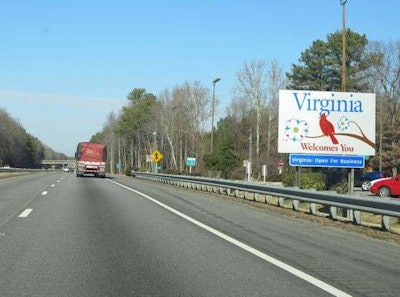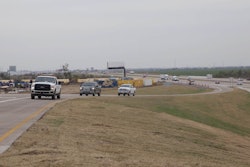
The procurement process for the project took 16 months to complete. It is the first major procurement process under the state’s reformed public-private partnership (P3) process. This revised process aims to increase competition, accountability and transparency in P3 projects.
“This project will transform travel in the I-66 corridor and pave the way for additional multimodal options that will reduce congestion and commute times,” says Gov. Terry McAuliffe. “Both teams that submitted bids for this project met the criteria the Commonwealth set for it, but Express Mobility Partners’ proposal was the best for Virginia from both a technical and financial standpoint.”
McAuliffe says the project will be built at a net savings of $2.5 billion for taxpayers due to the nature of the P3 arrangement.
“P3’s are a powerful tool for procuring new projects, but they only work if taxpayers’ interests are protected,” he says. “The reforms we have established strengthened Virginia’s negotiating position for this project and helped us secure the right project for the right price for taxpayers.”
The proposal will result in an upfront payment from Express Mobility Partners of $500 million to fund additional improvements in the corridor. The agreement also requires Express Mobility Partners to pay $800 million for transit service in the corridor and $350 million in other projects to improve the I-66 corridor over the next 50 years, the Virginia Department of Transportation (VDOT) reports.
VDOT expects to sign a comprehensive agreement Express Mobility Partners early next month, and close on the deal in mid-2017. Construction is expected to follow the financial close, with express lanes open to traffic in mid-2022.
“I am proud to say that, under Gov. McAuliffe’s leadership, Virginia has learned the lessons of previous poorly-negotiated projects and established a P3 process that is more competitive, transparent and accountable,” says Virginia Transportation Sec. Aubrey Layne. “Those reforms have strengthened Virginia’s negotiating position for this project and resulted in a significantly better deal for taxpayers. I look forward to overseeing the completion of this partnership agreement and undertaking this project so that Virginia families and businesses can benefit from reduced congestion and increased options in the I-66 corridor.”
Terms of the agreement include:
- Express Mobility Partners will have the right to collect and set dynamic tolls on the 66 Express Lanes for 50 years;
- Express Mobility Partners will be responsible for all costs to design, build, operate and maintain the 66 Express Lanes, without any upfront public contribution;
- Express Mobility Partners will provide $500M at financial close as a concession payment to the Commonwealth;
- Express Mobility Partners will contribute $800M over the next 50 years to build and operate transit projects in the I-66 corridor;
- Express Mobility Partners will provide $350M over the next 50 years to the Northern Virginia Transportation Authority for future additional projects to reduce congestion in the I-66 corridor;
- The Commonwealth has agreed to provide compensation to Express Mobility Partners if the WMATA Orange Line is extended during the next 10 years or if additional general-purpose lanes are added to I-66 in the project limits. Neither project is likely to happen within that timeframe; and
- There are no restrictions on HOV usage or alternative facilties.
- Project description:
- Multi-modal improvements to 22.5 miles of I-66 corridor from I-495 in Fairfax County to University Boulevard in Prince William County.
- Two express lanes alongside three regular lanes in each direction, with space in the median for future transit (vehicles with three or more people travel the express lanes for free and all other drivers have the choice to use the express lanes when paying a variable toll, general purpose lanes free to all traffic)
- 13 new and improved transit routes and more than 4,000 new park-and-ride spots
- Corridor-wide bike and pedestrian improvements
- Safety and operational improvements at key interchanges throughout the corridor
More details on the project is available at www.transform66.org.











